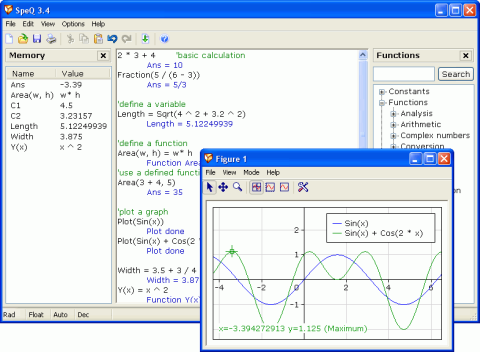What is it
SpeQ is a small, extensive mathematics program with a simple, intuitive interface.
All calculations are entered in a sheet.
In there you can freely add, edit and execute calculations.
SpeQ supports all common functions, constants, and units.
Furthermore, you can define custom variables and functions, and plot graphs of your functions.
